U.S. Department of Justice to join suit against AG Steve Marshall’s abortion prosecution threats
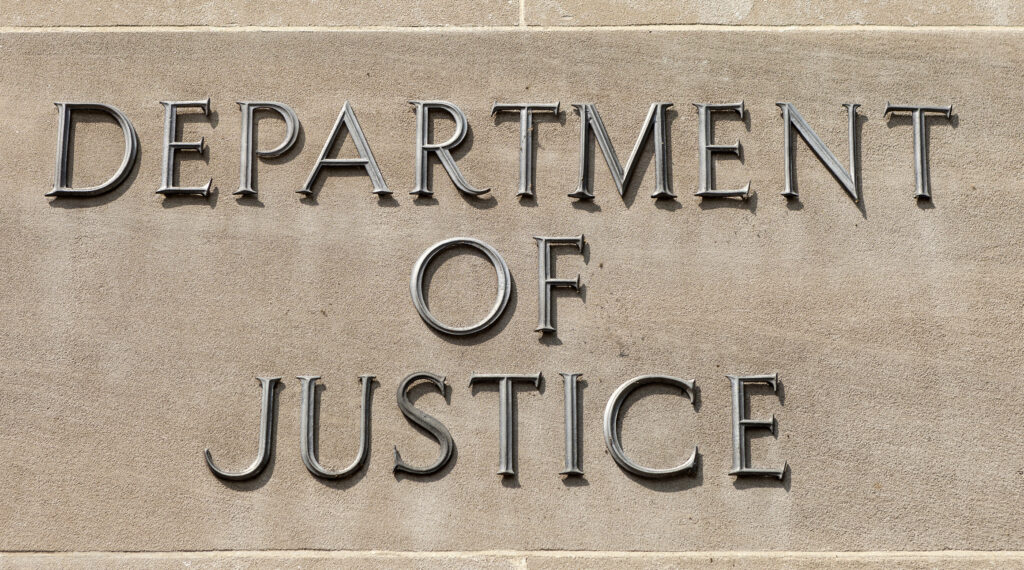
by Alander Rocha, Alabama Reflector The U.S. Department of Justice (DOJ) is joining a lawsuit seeking to stop Alabama Attorney General Steve Marshall from prosecuting those who help Alabama women obtain abortion services out of state. In a motion to intervene filed on Thursday, attorneys for DOJ argued that the right to travel between states was a fundamental American right, dating back to the Articles of Confederation. The filing cited a clause of the 14th Amendment in arguing that the right to travel is one of the rights of national citizenship provided by the Constitution. “The right to travel embraces more than just physical movement; it also protects an individual’s right to engage in conduct that is lawful in other states while in those states, regardless of their home state’s laws,” the motion stated. The lawsuit, filed on July 31 by former abortion providers in the state, cited comments made by Marshall in an August 2022 radio interview, where he suggested Alabamians helping people obtain legal abortion care in other states could face felony prosecutions. The lawsuit alleges Marshall’s comments and the threat of prosecution forced healthcare providers to cease providing critical information, counseling, and practical support to Alabamians exercising their constitutional right to access medical care across state lines. After the lawsuit was filed, Marshall renewed his threats to prosecute out-of-state abortion care. U.S. District Judge Myron Thompson postponed a hearing set for Oct. 31, and the hearing has not been rescheduled. The DOJ motion Thursday argued that states lack the authority to prohibit travel across state lines and can’t prevent third parties from helping individuals seek an abortion out-of-state. “The Alabama AG cannot undermine the right to travel by making each traveling individual an island unto themselves, prohibited from receiving assistance from anyone else within the state,” attorneys for DOJ wrote. Health care providers sue Alabama officials over threats of prosecution in abortion aid The motion further argued that the United States and its federal agencies have an interest in states not criminalizing travel, or the assistance of travel, across state lines to access healthcare. “The United States has a sovereign interest in preserving the proper functioning of the federal system, including by ensuring that one state does not improperly intrude into the affairs of other states, thereby protecting the integrity of the Union itself,” the motion stated. The motion also referenced Supreme Court Justice Brett Kavanaugh’s opinion in Dobbs v. Jackson Women’s Health Organization, the 2022 ruling that struck down the right to abortion. “As Justice Kavanaugh has explained, the question of whether a State may ‘bar a resident of that State from traveling to another State to obtain an abortion’ is ‘not especially difficult’ — ‘the answer is ‘no’ based on the constitutional right to interstate travel,’” according to the motion. The motion also argued that the state does not have the right to prevent organizations or individuals from providing help for out-of-state abortion care, noting that the Supreme Court has ruled that helping people travel is equally protected. When a state prevents third-party assistance for travel, the motion argued, it violates that right to travel. If restrictions were allowed for conduct that the state prohibits, that could open the door to “problematic state laws.” “A state that criminalized gambling could go further and prevent its residents from assisting with travel to casinos in Mississippi or Nevada, based solely on its policy disagreement with those states on that issue,” the motion said. The attorney general’s office had not responded to the motion as of Thursday evening. Alabama Reflector is part of States Newsroom, a network of news bureaus supported by grants and a coalition of donors as a 501c(3) public charity. Alabama Reflector maintains editorial independence. Follow Alabama Reflector on Facebook and Twitter.
Muscogee Nation renews lawsuit over Alabama casino they say desecrated a sacred site

The Muscogee (Creek) Nation has asked a federal appellate court to reinstate its lawsuit against the Poarch Creek Band of Indians and Auburn University for improperly removing graves from a sacred site in Alabama to build a casino. The Oklahoma-based tribal nation alleges that Wind Creek Casino and Resort in Wetumpka, Alabama, was built at Hickory Ground, a sacred site and capital when federal troops forced the Muscogee out of Alabama nearly 200 years ago. Workers removed 57 sets of human remains and the artifacts buried with them, storing some of them in containers without proper ventilation or temperature control, according to the lawsuit, which was originally filed in 2012. A federal judge threw out the suit in 2021, but on Friday, the tribal nation asked the 11th Circuit U.S. Court of Appeals in Atlanta to reinstate it, al.com reported. A letter sent last month to the Alabama-based Poarch Creek tribe by David Hill, the Muscogee (Creek) Nation’s principal chief, says the tribe failed to meet its obligation to Muscogee ancestors, the news site reported. “You made a promise to protect these lands and the MCN ancestors who remain there,” Hill wrote. “A promise that was broken when you removed our ancestors, stored them in boxes and sent them off to a university to be studied by non-Indian archeologists. Some, still today, sit in a storage facility on site. You have yet to do right by them.” Alabama is the ancestral home of the Muscogee Nation, and Hickory Ground was the tribe’s last capital before removal on the Trail of Tears — a brutal, 800-mile (1,287 kilometers) march to Oklahoma that claimed countless lives. The mekko, or chief, of Hickory Ground, relocated the settlement to Oklahoma, the appeal said. “Although violently and forcibly removed from the sacred ground where they held ceremony since time immemorial, the modern-day members of Hickory Ground have kept the traditions, culture, and ceremonies of their Muscogee ancestors alive at the present-day Hickory Ground on the Muscogee Reservation in Oklahoma,” the appeal said. The dispute between the Muscogee Nation and Poarch Creek has been ongoing for years. When the Alabama tribe first built a bingo hall on the site in 2001, it unearthed remains and artifacts. Archaeologists from Auburn University helped store and remove some of what was found, the complaint said. A spokesperson from Auburn University said the university had no comment on the appeal, which contends it violated the Native American Graves Protection and Repatriation Act, which requires federally funded museums and universities to return ancestors and items buried with them to their descendants. The appeal seeks to stop further development of the land that is part of Hickory Ground and to have the Wind Creek Casino torn down. It also seeks to have ancestral remains returned. Hickory Ground was placed on the National Register of Historic Places in 1980. The Poarch Creek Band acquired the land the same year, in part with federal preservation grant funds, according to the appeal. In 1999, Poarch Creek asked the National Park Service to delegate its preservation duties to the tribe and began planning to build a bingo hall that later expanded into the casino. U.S. District Judge Myron Thompson of the Middle District of Alabama in 2021 dismissed the 2012 lawsuit, which had been renewed in 2019. Because the Poarch Creeks are a federally recognized tribe, they have qualified immunity and cannot be sued for developing their land, according to his opinion. Poarch leaders could not be immediately reached for comment about the appeal. Republished with the permission of The Associated Press.
Alabama prison system raises officer pay to recruit staff
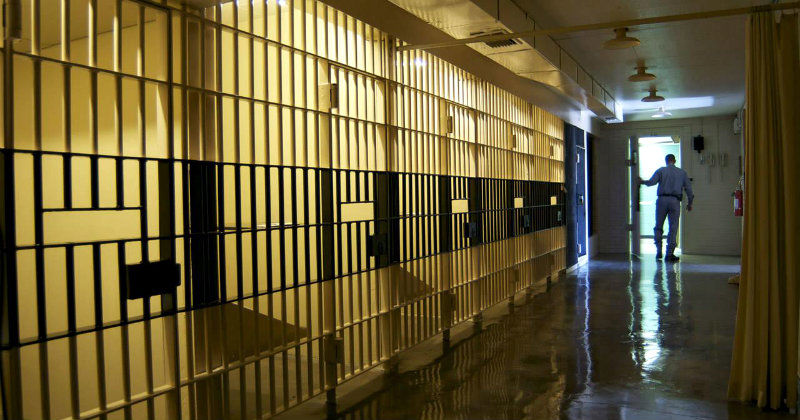
The Alabama prison system is raising pay for correctional officers beginning Thursday in an effort to address an ongoing staff shortage. The starting pay for a correctional officer trainee will rise from a minimum of $33,381 to a minimum of $50,712, with additional pay for those who work at high-security facilities. The starting pay at a medium security facility will be $53,244, and $55,855 at a maximum security facility. “Everybody knows about our staffing challenges, and we hope this will certainly be a good start in remedying those challenges,” Alabama Corrections Commissioner John Hamm told reporters on Wednesday. “This is something that we are excited about because in the tight labor market that we have, we need to be competitive with other law enforcement entities. This makes us competitive.” The Alabama Department of Corrections announced the raises earlier this month. The department has scheduled recruitment events across the state. The pay raises come as the state has seen the number of officers working in state prisons shrink despite a court order to increase staffing. The number of security employees, in positions ranging from cubicle operator to warden, dropped from 2,225 on September 30, 2021, to 1,758 on December 31, according to quarterly reports submitted to the Joint Legislative Prison Oversight Committee. A federal judge last month questioned the state’s lack of progress in complying with his order to increase the number of officers working in state lock-ups. In 2017, U.S. District Judge Myron Thompson found that mental health care in Alabama prisons is so inadequate that it violates the U.S. Constitution’s ban on cruel and unusual punishment. He said understaffing is a root issue of the problem and ordered the state to increase the number of corrections officers. Republished with the permission of The Associated Press.
Vigil for slain state prisoners held Tuesday
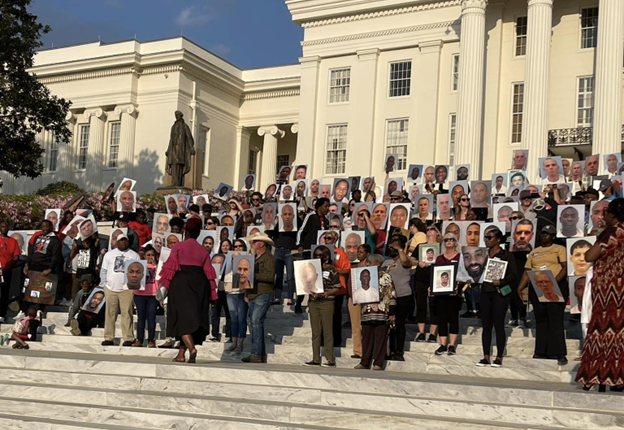
On Tuesday, Alabama Governor Kay Ivey delivered her state of the state address in a packed gathering of legislators, staff, and supporters in the historic 1859 Alabama State Capital Building. Minutes earlier, families of deceased state inmates gathered outside the same building to protest the conditions in which their loved ones were housed by the State of Alabama and remember those prisoners who died while in state custody. The Vigil for the Victims of the Alabama Department of Corrections was organized by the Woods Foundation. The rally was held on the Capitol Steps. Nearly 100 protesters attended the event. The protestors held photos of incarcerated Alabamians who had died prematurely while in the custody of the Alabama Department of Corrections (ADOC). Following the Capitol Steps remembrance of the dead inmates, the group moved their rally to the historic Dexter Avenue Baptist Church. Woods Foundation founder Lauren Faraino addressed the rally. “We are here to wake up our politicians and wake up the people of the state of Alabama,” Faraino said. “They will tell us that prisoners should stay in prison until the last day of their sentence. They will tell us that parole is not an option. We are here to tell them that a prison sentence should not be a death sentence.” “Alabama has the highest in-custody death rate of any state in the nation,” Faraino said. “Alabama has the highest murder rate. Alabama has the highest suicide rate,” for prisoners compared to the other 52 prison systems. The Ivey administration has addressed the issue of Alabama’s overcrowded prisons by beginning construction of two new mega prisons in Elmore and Escambia Counties. “We don’t need more prisons,” Faraino said. “We don’t need to give more money to a corrupt and failing agency.” According to the Wood Foundation, the murder rate for prisoners by prisoners is eight times the national average, and most suicides are prisoners in solitary confinement. The Woods Foundation also claims that assaults by corrections officers show a “pervasive pattern [of] excessive force.” They claim that the use of batons, chemical spray, physical altercations, and kicking by the guards often result in the deaths of prisoners. They claim that the vast majority of incarcerated men in prisons are addicted to deadly drugs often brought in by prison staff. ADOC Commissioner John Hamm recently told legislators that most of the contraband (drugs, weapons, and cell phones) are thrown over the fence. The Woods Foundation alleges that rapes of inmates occur “at all hours of the day and night…occurring in the dormitories, cells, recreation areas, the infirmary, bathrooms, and showers.” Former ADOC Corrections Officer Stacy George also spoke to the protestors. George told Alabama Today that the conditions in the prison facilities are “just awful. It’s terrible.” Fariano claims that ADOC has not notified the next of kin when their relatives have died in the penitentiary. “I can’t tell you how many of the families tell me that they found out that their sons and brothers had died on Facebook,” Fariano said. The ADOC has a chronic shortage of corrections officers. The low ratio of guards to prisoners means that guards aren’t there to protect prisoners from violence by other prisoners. It also means that guards receive little oversight, and often there is no one to intervene if a prisoner attempts suicide or drug overdoses until it is too late. In her state of the state address, Gov. Ivey did not mention the high mortality of the prisoners or justice reform but did say that she supports increased pay and benefits for the corrections officers. “Here in our state, we have and we will always back the blue, and that means standing behind the men and women who serve Alabama as Corrections officers,” Ivey told legislators. “That is a tough – and too often thankless calling, not just a job, and we must continue to make increasing their salaries and benefits a priority.” George did express some optimism that raising pay for corrections officers would result in the prisons being able to recruit and retain more officers. Fariano accused the leaders of the state of Alabama of being apathetic about the plight of the prisoners. “The politicians of the state of Alabama do not see these faces as victims, but they are victims,” Fariano said. The state of Alabama has been accused by the U.S. Department of Justice of having prison conditions so poor that it constitutes cruel and unusual punishment and is unconstitutional under the eighth amendment. The legal costs of defending against that and other lawsuits is costing ADOC funds that could otherwise be going to improve prison conditions or adding staff. Federal Judge Myron Thompson has ordered the state to hire an additional 2,000 corrections officers in a lawsuit brought on behalf of current and former prisoners by the Southern Poverty Law Center (SPLC). ADOC has adopted a new healthcare provider and attempted to improve mental health services for prisoners to address the issues brought up in that litigation. However, the number of guards has declined since Judge Thompson gave that order. The legislature has boosted funding for ADOC after years of neglect. ADOC received a state general fund (SGF) appropriation of $595 million in fiscal year 2023, as well as $400 million in American Rescue Plan Act (ARPA) funds to kickstart construction of the new mega prisons. To connect with the author of this story or to comment, email brandonmreporter@gmail.com.
Alabama prison staff shortage worsens despite court order
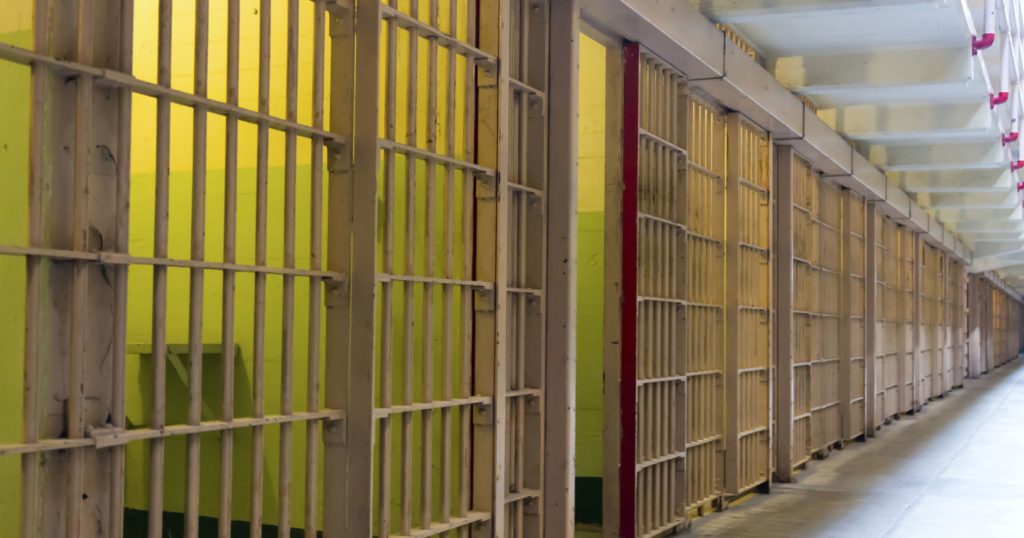
A federal judge said Friday that Alabama prisons remain critically understaffed, with court filings showing the number of officers in state lockups has continued to drop despite a court order to increase numbers. The prison system has lost more than 500 security staff employees over the last 18 months, according to court filings. “We had horrendous understaffing in this department and something has to be done,” U.S. District Judge Myron Thompson said during a status conference in the long-running lawsuit over prison health care. In 2017, Thompson found that mental health care in Alabama prisons is so inadequate that it violates the U.S. Constitution’s ban on cruel and unusual punishment. He said understaffing is one of the root issues and ordered the state to increase the number of corrections officers. William Van Der Pol, a lawyer representing inmates in the lawsuit, told Thompson that Alabama has fewer correctional officers than when the litigation began or at any point where they could find comparative numbers. The state has used pay raises and recruitment efforts to boost officer numbers, but has been hindered by a tight labor market, Bill Lunsford, a lawyer for the state argued. Thompson asked the two sides to compare current staffing levels to what they were in 2014 when the case was filed. Van Der Pol, an attorney with the Alabama Disabilities Advocacy Program, told Thompson that based on available numbers the prison system is at its “lowest number in history” for officers working at major facilities. “It has kind of fallen off a cliff for lack of a better word. It has dropped from 1,800 officers down to a little over 1,300 in the last year-and-a-half … They are a lower number today than they have ever been,” Van Der Pol said. Lunsford said the state did not dispute the numbers but called it a misleading “soundbite.” He said the tight labor market has many industries searching for workers and that that is a “difficult headwind” for the state’s effort to hire and retain staff. Increasing staffing has been a priority for the department, said Lunsford. Between 2019 and 2021, the state added more than 1,000 security staffers through recruitment and retention efforts that included pay raises and bonuses, according to Lunsford. “This is not a story of total failure. There have been successes,” he said. Thompson said blaming the low unemployment rate was an excuse and suggested that the department may need to again raise the salaries of correctional officers to recruit the needed workers. Lawyers for Alabama wrote in a court filing that prisons had the equivalent of 1,392 correctional staff members on September 30, 2022, after losing 528 correctional staff since April 1, 2021. On March 31, 2021, they had 1,920 staff members, according to earlier reports filed by the prison system. The numbers included dozens of cubicle operators, who are responsible for door controls but are not certified officers. Lawyers for inmates argued cubicle operators should not count in total security staffing numbers. While lawyers for inmates argued the current staffing numbers are a record low, state attorneys argued in a court filing that it is difficult to compare 2022 and 2017 numbers because of changes in prison operations. Republished with the permission of The Associated Press.
State puts prison healthcare problems under a new health care service provider

On Tuesday, the Alabama Department of Corrections (ADOC) announced that YesCare, Corp. has been selected to enter negotiations for the department’s comprehensive healthcare services contract. Inmate healthcare has been a problem in Alabama prisons for years. Alabama Today spoke with a psychiatrist who formerly worked for ADOC treating the inmates/patients. “Care sucked in the late 1990s and early 2000s,” said the doctor, who asked that his name not be used. “It sucked in the early-mid 20teens. It has been going on for 20 years. Guess what? It still sucks!” Alabama Today asked if recruiting physicians who want to treat convicted criminals is difficult. “It doesn’t suck this bad in other states,” the doctor said. “It doesn’t suck this bad at Bryce or at Searcy back in the day. Why must Alabama prison health care suck so bad for so long? Hint: idiots and cheapskates and apathy, mainly.” “I was seeing 36 to 40 patients a day,” the doctor continued. “It was ridiculous.” YesCare was among four healthcare companies that responded to the ADOC’s request for proposals (RFP), which was issued on September 26, 2022. In addition to YesCare’s proposal, the ADOC received submissions from Centurion, VitalCore, and Wexford. “The RFP evaluation committee conducted a thorough and extensive examination of each vendor’s proposal. After careful consideration of the evaluation committee’s recommendations, the ADOC decide to enter into contract negotiations with YesCare based on a combination of quality care and overall cost,” said Commissioner John Hamm. The Southern Poverty Law Center (SPLC) has sued the state in federal court on behalf of several current and former Alabama inmates, alleging that the state does not provide adequate mental health treatment, drug treatment, and healthcare to inmates. The lawsuit, Braggs v. Dunn, was filed in 201allegedlleges that ADOC systemically puts the health and lives of incarcerated people at risk by ignoring their medical and mental health needs and by discriminating against incarcerated people who have disabilities – violations of federal law by a prison system that has one of the highest mortality rates in the country. Ashley Austin is a staff attorney for the SPLC’s Criminal Justice Reform Practice Group. “Alabama must provide constitutionally adequate care for the human beings in its prisons,” Austin said. The SPLC and the Alabama Disabilities Advocacy Program joined the law firms of King & Spalding and Hogan Lovells in presenting evidence that they claim shows horrific and inhumane conditions inside the prisons. The state has been ordered by federal judge Myron Thompson to hire additional corrections officers. The state is also facing a U.S. Department of Justice lawsuit alleging that the conditions in Alabama’s 27 correctional facilities are so inhumane that incarceration in Alabama’s prisons constitutes cruel and unusual punishment and is thus unconstitutional under the Eighth Amendment. The negotiations on the final terms of the contract are expected to take weeks. In its recommendation, the RFP review committee considered the company’s experience and qualifications, delivery of care, program management, support services, staffing requirements, and compensation. The four-year and six-month contract will go into effect on April 1, 2023. YesCare is headquartered in Brentwood, Tennessee. They have more than 40 years of correctional healthcare experience, having served clients and patients at more than 475 facilities across the country. Details of the contract or even the bids have not been released to the public. Once the contract is final, all proposals and the results from the RFP review committee will be public record. To connect with the author of this story, or to comment, email brandonmreporter@gmail.com.
Alabama prisons pick new inmate health care provider

The Alabama Department of Corrections, for the second time this year, has picked a Tennessee-based company to provide health care services at its 27 facilities. YesCare Corp., based in Brentwood, Tennessee, was chosen over three other companies that submitted proposals. The department said it would negotiate with YesCare and release information about the contract once it is final. The four-and-a-half-year contract is scheduled to take effect April 1, al.com reported. The department had issued a request for proposals on September 26. The other companies that submitted proposals were Centurion, Vital Core, and Wexford. Wexford is the current provider, and its employees who work in department facilities will be offered jobs with YesCare, corrections officials said. Department commissioner John Hamm said YesCare was chosen based on a combination of quality, cost, and experience. YesCare has more than 40 years of correctional healthcare experience at more than 475 facilities across the country, the department said. The department said in July that it had picked YesCare Corp. over four other companies but rescinded the decision and issued a new request for proposals. The agency did not give a specific reason for repeating the process, saying only that it was done “out of an abundance of caution.” The quality of health care and mental health care for inmates is the subject of a federal lawsuit filed on behalf of inmates in 2014. U.S. District Judge Myron Thompson ruled in 2017 that the department’s mental health care was “horrendously inadequate.” The court is overseeing efforts by the state to increase staffing and make other changes to improve mental health care. The case is separate but has overlapping issues with the Department of Justice lawsuit filed in 2020 alleging unconstitutional conditions in Alabama’s prisons for men. Republished with the permission of The Associated Press.
8 prisoners died in Alabama prisons last week

For the last few years, the Alabama Department of Corrections (ADOC) has been in the news for concerning reasons. In 2021, the U.S. Department of Justice (DOJ) accused ADOC of running the most dangerous prison system in the country and sued the state, claiming that a sentence to an Alabama prison constitutes a “cruel and unusual punishment” and is thus an unconstitutional violation of the Eighth Amendment. The DOJ even filed an updated complaint in their ongoing lawsuit against Alabama over prison conditions arguing that violence remains unabated in facilities that are both overcrowded and “dangerously” understaffed. “In the two and a half years following the United States’ original notification to the State of Alabama of unconstitutional conditions of confinement, prisoners at Alabama’s Prisons for Men have continued daily to endure a high risk of death, physical violence, and sexual abuse at the hands of other prisoners,” the Justice Department wrote in the complaint signed by U.S. Attorney General Merrick Garland. Alabama prisons reported eight deaths last week, reported the Montgomery Advisor. ADOC said its Law Enforcement Services Division is investigating each of the deaths but hasn’t released any details. According to the report, each person was “found unresponsive.” In September, Alabama prisons were filled to 164.9% of their designed capacity. In a recent Alabama Today report, former corrections officer Stacy George explained just how bad conditions are in Alabama prisons. In fact, he’s written a book about it. George is just the latest ADOC officer who, overwhelmed by the hours, personal risks, and conditions of the state’s prisons, has left government service. George is a former Morgan County Commissioner and has twice run for the Republican nomination for Governor of Alabama (2014 and 2022). George said that the prisons are so understaffed that he fears that the inmates could potentially take control of one or more of the overcrowded facilities. “At any time, they can take a prison,” George warned. “It is a danger to the officers, the people that work there. The public is in danger.” 2022 has been an especially deadly year in Alabama prisons. Through September, 179 people died in the state’s prisons. That exceeds the year-end total for every year on record except one for 2020, when the COVID-19 pandemic spread through prisons. July 2022 was the deadliest month on record in Alabama prisons. Here is a list of the men who died last week: Justin Wade Hopkins, 39, died on November 22 in Elmore Correctional Facility. Hopkins was discovered unresponsive in his dorm. He was transferred to the prison infirmary, where he was pronounced dead, ADOC said. Willie A. McCall, 67, died November 23 in St. Clair Correctional Facility. Discovered unresponsive on the dorm floor in St. Clair, McCall was taken to the infirmary, where he was pronounced dead. Cameron Holifield, 22, died on November 24 in Staton Correctional Facility. Found unresponsive in his dorm, he was taken to the prison infirmary, where he was pronounced dead. Grady Anthony Lee, 44, died the same day in Bibb Correctional Facility. Found unresponsive in his dorm, he was taken to the health care unit, where he was pronounced dead. Barry Christopher Culver, 25, died on November 25 in St. Clair Correctional Facility. He was found unresponsive on his bed, where he was assessed by medical personnel and pronounced dead. Jason P. Hopkins, 36, died on November 25 in Elmore Correctional Facility. He was taken to the health care unit after he was found unresponsive on his bed. Medical staff responded, but he was pronounced dead. Jimmy R. Hurst, 89, also died on November 25 at Limestone Correctional Facility. Hurst reported to the infirmary with “certain symptoms” before he “became unresponsive.” He died there. Joseph Edward Nichols, 46, died on November 27 in Ventress Correctional Facility. He was found unresponsive in his dorm and taken to the prison infirmary, where he was pronounced dead. U.S. Judge Myron Thompson has ordered ADOC to hire 2,000 more guards – a mission that the troubled system has failed to do despite three years of trying.
Stacy George warns that understaffed prisons pose a threat to public safety
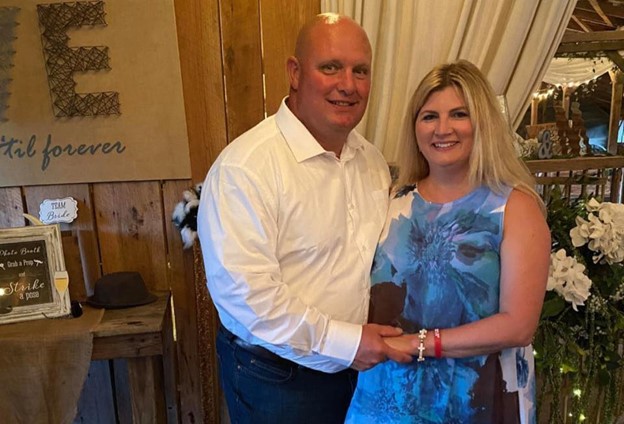
Stacy George is a former Morgan County Commissioner. George, a published author, has twice run for the Republican nomination for Governor of Alabama (2014 and 2022). However, for the last 13 and a half years, George has worked as a corrections officer for the Alabama Department of Corrections (ADOC) – until yesterday. George is just the latest ADOC officer who, overwhelmed by the hours, personal risks, and conditions of the state’s prisons, has left government service. George told Alabama Today on Thursday that he is frustrated by the “inhumane” conditions and is planning a new book exposing the problems at ADOC titled: At what point does punishment become revenge? George takes pride that the fact that in his time in ADOC service, he never had to use force on an inmate. “I have never had to spray an inmate, and I have never had to use a baton on one,” George said. “I usually don’t even carry a baton.” George said that the prisons are so understaffed that he fears that the inmates could potentially take control of one or more of the overcrowded facilities. “At any time, they can take a prison,” George warned. “It is a danger to the officers, the people that work there. The public is in danger.” George charged that often there are only 8 guards on duty at night (and sometimes as few as six) at an ADOC facility that holds 2,300. “There is no telling what they would do to the women in there if they took control,” George said, referring to the women officers that ADOC has hired to work in the prisons. George said that he has been tasked with taking the inmates to the showers even though the facilities are chronically understaffed. “That’s a job for three officers, and I have had to do it by myself,” George said. “When one has to go to the hospital, that is a job for three officers, and I have had to do that by myself. If he gets by me, he is loose in the hospital, and their guards aren’t even armed. I am thinking, what if I have to go to the bathroom while we are there?” “They told me I cannot even provide them with soap,” George continued. “When are we going to get some soap?” George said that he has had to frequently serve as the only guard on an entire cell block – normally a job for three guards and that there have even been shifts where they did not have a guard for each area, so in some of the dorms, the prisoners “just had to police themselves.” U.S. Judge Myron Thompson has ordered ADOC to hire 2,000 more guards – a mission that the troubled system has failed to do despite three years of trying. George said that ADOC depends on its officers working overtime to keep the facilities guarded. “When I go in there, I bring my lunch and my dinner because I don’t know when I am coming out. It could be ten hours, 12 hours, or 16 hours,” George said. “I am going to go to my grandson’s birthday party. I have not seen him for a year, I am going to be able to go to my Church, where they only see me about once a month.” The U.S. Department of Justice has accused ADOC of running the most dangerous prison system in the country and has sued the state claiming that a sentence to an Alabama prison constitutes a “cruel and unusual punishment” and is thus an unconstitutional violation of the Eighth Amendment. “How we treat them is shameful,” George said. “There are only two nurses for 2,300 inmates.” George said that in his tenure at ADOC, he has had to deal with between 50 and 100 stabbings of inmates. “It’s way over 50 – it could be a hundred,” George said. “One time, we came in, and there were blood trails all over the place. It took us four hours to find all the (stabbed) prisoners because there we were so short-staffed.” George said that inmates attempting, or threatening suicide, is a frequent occurrence. “The inmate said he was going to kill himself, and he cut himself with a razor blade,” George said. George then called for help, and the supervisor on the other end of the line asked, “How bad is he bleeding? Do you think he is trying to kill himself, and I said yes.” The inmate did not die. “There are prisoners down on the ground flopping in diabetic comas, and you don’t know whether it is that or a drug overdose,” George said. George said that he was involved in an accident a year ago, and since then, walking up and down the stairs inside the facility has become difficult for him. ADOC knew of his difficulty but did not give him any accommodations, ultimately leading to his resignation. “They have called and offered me two jobs since then,” George said of ADOC. George said that he is holding a press conference in front of the Department of Corrections headquarters in Montgomery on Friday. “I am going to blow the doors off of this system,” George said. To connect with the author of this story, or to comment, email brandonmreporter@gmail.com.
“We need to do better,” Yolanda Flowers says of Alabama’s criminal justice system
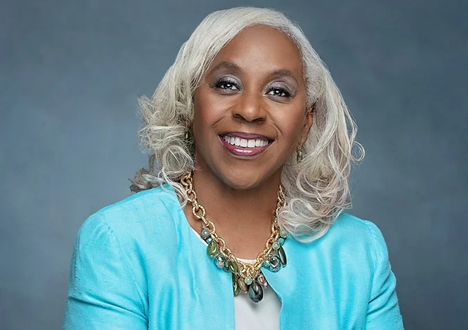
On Monday, inmates at the Alabama Department of Corrections (ADOC) launched a statewide work stoppage to protest their quality-of-life concerns in Alabama’s prisons. On Wednesday, Alabama Democratic Party gubernatorial nominee Yolanda Rochelle Flowers said in a videotaped statement sent to Alabama Today, “We can do better.” Flowers claimed that the prisoners were being treated “worse than animals” and called on people to call Alabama Governor Kay Ivey to address her concerns. “Hey, this is Yolanda Flowers. I am your gubernatorial candidate for Governor of Alabama,” Flowers said. “My concerns that I want to address is our criminal justice system and how unfair it is all across the state.” “Our incarcerated loved ones, our incarcerated citizens, are suffering,” Flowers claimed. “They are suffering from the injustices. They are not getting the proper food. They are not getting the proper healthcare services. Whether it is mental or physical…they are not getting it. They are living in conditions that, to be honest, are worse than animals outside. We need to do better. We need to call our governor up on this. No, she doesn’t want to give equitability to our people, but our people are suffering. Yes, they made some mistakes, but that is OK; she has too. So I am asking that you all will vote for Yolanda Flowers.” The Alabama prison system has been heavily criticized over the years. The Southern Poverty Law Center (SPLC), on behalf of several current and former inmates, has sued the state claiming that the prisoners do not get the proper mental services and that the prisons are chronically understaffed. Federal Judge Myron Thompson has ordered the state to address the lack of mental health services. ADOC has responded by contracting with a new mental healthcare provider. Thompson has also ordered ADOC to hire 2,000 more prison guards. Despite raising the pay and providing generous signing and retention bonuses, ADOC has not been able to hire even 20 percent of that number in the past three years. That case is still pending. The Obama Justice Department ordered an investigation of the Alabama prison system. An investigation that the Trump Justice Department carried out. The DOJ investigation revealed that ADOC is the country’s most violent prison system and that numerous documented cases of beatings, rapes, and even murders of inmates by other inmates in the system. The system is awash in illegal drugs, and several inmates have overdosed while in ADOC custody. After the Ivey administration failed to move quickly enough to address DOJ’s concerns, then-Attorney General William Barr filed suit against the state, claiming that conditions in the Alabama prisons are so bad that they constitute a “cruel and unusual punishment” and are thus unconstitutional – a claim that the state of Alabama disputes. The Biden DOJ has not backed away from the Trump administration’s position and offered leniency to the state. In November, the Alabama Legislature approved Gov. Ivey’s plan to build two new mega prisons that will house in excess of 4,000 inmates each. The Ivey administration claims that the new facilities will allow ADOC to guard the same number of inmates with fewer guards while providing better health and mental services to inmates. Construction is underway on the two mega prisons in Elmore and Escambia Counties. In December, Gov. Ivey fired ADOC Commissioner Jeff Dunn, a Bentley Administration holdover who had been tasked with transforming the prison system. A video of an inmate being beaten by an ADOC guard on the roof of one of the prisons has only enflamed passions on both sides of the standoff. The inmates claim that ADOC is retaliating against their work stoppage by withholding food. Ivey and Flowers, along with Libertarian Dr. James “Jimmy” Blake, will be on the November 8 general election ballot for governor. To connect with the author of this story, or to comment, email brandonmreporter@gmail.com.
AG Steve Marshall demands Alabama abortion clinics “cease and desist operations” and promises prosecution for violations
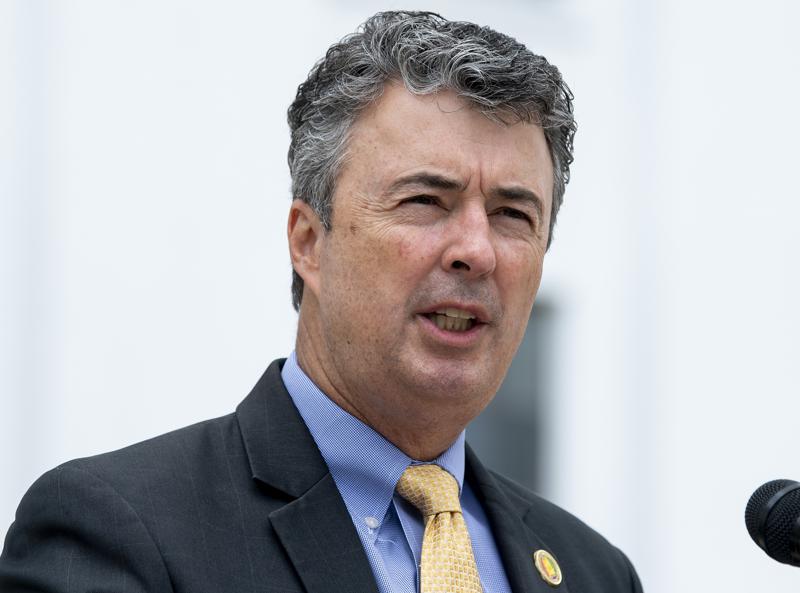
Attorney General Steve Marshall issued a statement following the U.S. Supreme Court opinion overturning Roe v. Wade. “Today is a truly historic day. The United States Supreme Court has, at long last, finally overturned its fatally flawed decision in Roe v. Wade. The issue of abortion now returns to the States—and the State of Alabama has unequivocally elected to be a protector of unborn life,” Marshall stated. In 2019, Alabama passed the Alabama Human Life Protection Act that would make performing an abortion a felony in almost all cases. However, an injunction by U.S. District Judge Myron Thompson temporarily stopped the ban from taking effect. The Supreme Court ruling from the 1973 ruling of Roe v. Wade made the law unenforceable. Now that Roe v. Wade has been overturned, states with these types of laws can now enforce them. Marshall continued, “Because neither the United States Constitution nor the Alabama Constitution provides a right to abortion, Alabama laws that prohibit abortion and that have not been enjoined by a court are in full effect. For those laws that have been halted by courts, the State will immediately file motions to dissolve those injunctions. Any abortionist or abortion clinic operating in the State of Alabama in violation of Alabama law should immediately cease and desist operations. The injunction the court put on the Alabama Human Life Protection Act was lifted on the same day Roe v. Wade was reversed. Marshall released a statement on that ruling, saying, “Alabama’s law making elective abortions a felony is now enforceable. Anyone who takes an unborn life in violation of the law will be prosecuted, with penalties ranging from 10 to 99 years for abortion providers.”
Trans people say Alabama license policy puts them at risk
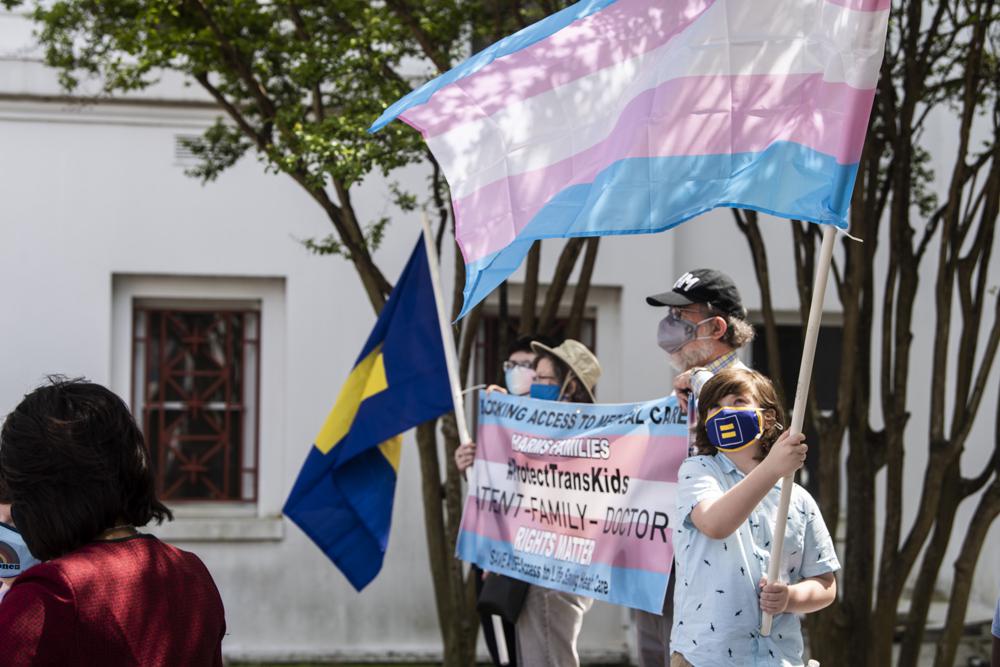
Federal judges this week heard arguments in a challenge to Alabama’s policy requiring a transgender person to undergo full gender reassignment surgery to change the sex listed on their driver’s license. Gabriel Arkles, senior counsel at Transgender Legal Defense and Education Fund, told judges with the 11th U.S. Circuit Court of Appeals that Alabama is one of only a few states in the nation that require transgender residents to undergo genital surgery, “as a condition of getting a license that they can safely use — that is a license with a sex designation that accords with their identity and how they are known and perceived in their community.” Three transgender women in Alabama challenged the policy after being told their licenses must reflect they are men. U.S. District Judge Myron Thompson last year ruled that the policy is unconstitutional. The judge directed the state to give the plaintiffs new licenses “reflecting that they are women.” The state appealed, and attorneys said the state indicated it will rescind the licenses if the ruling is reversed. A three-judge panel of the 11th U.S. Circuit Court of Appeals heard the arguments Tuesday. People need identification to navigate daily life, Arkles said. Being forced to carry cards that don’t match their identity puts trans individuals at risk for discrimination, harassment, or even physical danger, groups representing the women said. “I know who I am. Transgender people know who we are; that’s not the issue,” Destiny Clark, a health care worker from Birmingham and one of the women who challenged the Alabama policy, said in a statement. “The issue is getting the state to recognize our existence and just let us live without intruding into our private medical records.” An attorney for the state argued the policy is not discriminatory because it gives a path for transgender individuals to change their gender marker. “These are law enforcement identification documents. That is why they have identifying information on them, including date of birth, height, weight, hair color, eye color, someone’s signature, and someone’s sex,” Edmund LaCour told the judicial panel during arguments. A ruling is not expected for several months. Republished with the permission of the Associated Press.


